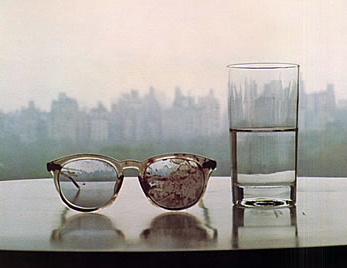 Bernie isn't a particularly talented lyricist, but for some reason the partnership with Elton is magical. It often seems to me that Bernie's most cringe-worthy lyrics inspire Elton's best music.
Bernie isn't a particularly talented lyricist, but for some reason the partnership with Elton is magical. It often seems to me that Bernie's most cringe-worthy lyrics inspire Elton's best music.(Most songwriters compose the music first, then fit the lyrics to the melody; but Bernie and Elton reversed the conventional process.)
The album liners to the remastered Elton John discs often make reference to Bernie's lyrics. Here's Bernie himself, in the liner notes to the Elton John CD:
It's how [the words] sound together, you don't have to worry about whether it rhymes or whether the meter's great. It's just how it feels here and now. The perfect example of that is "Take Me To The Pilot". If anybody can tell me what that song's about, it'd be great. But hey, it worked.
I love the song, "Where To Now, St. Peter?" on the Tumbleweed Connection disc. But I was surprised to learn, "[it] addresses the agnostic dilemma of whether the final destination is heaven or hell."
According to Christian tradition, St. Peter is the gatekeeper who lets us into heaven (or not) after our death. But St. Peter might also direct our course here on earth. Is the lyric about a soldier? Is the soldier dying? I doubt many people would guess it without being told.
Or consider "Daniel" (on Don't Shoot Me, I'm Only The Piano Player):
In the companion book to the Two Rooms tribute album in 1991, Bernie Taupin […] admits: "It is a song that is important to me, because it was the one thing I said about the Vietnam war", and calls it "the most misinterpreted song we've ever written. It's been interpreted as a gay anthem, a family feud song — there's no end to it".
No wonder it has been misinterpreted: the lyric says that Daniel was flying to Spain! It's clear that Daniel's brother misses him, but that's as far as the lyric takes us. Bernie thinks it was the only thing he ever said about the Vietnam war, but obscure isn't a strong enough adjective in this case. Only in Bernie's head does "Daniel" comment on Vietnam or any other war!
Arguably Elton John's best LP was 1975's Captain Fantastic And The Brown Dirt Cowboy. This time, the lyrics hold up rather well. Bernie worked harder on the lyrics, presumably because they were autobiographical. (Elton is Captain Fantastic, of course, and country boy Bernie is The Brown Dirt Cowboy.)
It was very interesting to write about real incidents, and it was a good lesson because when I write very quickly, it rolls out. With this, I took much more time. I would write something, then I'd go on to something else, then go back and work some more on what I'd done previously. It was a new exercise and I think it really paid off.
Frankly, it comes as no surprise that most of Bernie's lyrics were tossed off with minimal effort. Even when the song is a gem, the lyrics are hardly polished.
Other lyricists (Bob Dylan, John Lennon, Pete Townshend, Bruce Cockburn) deliver more of a message. Taupin's lyrics are oblique and evocative, and maybe that's where the magic comes from.
One suspects that a lyric with a direct, transparent meaning would have elicited less dynamic music from Elton.



